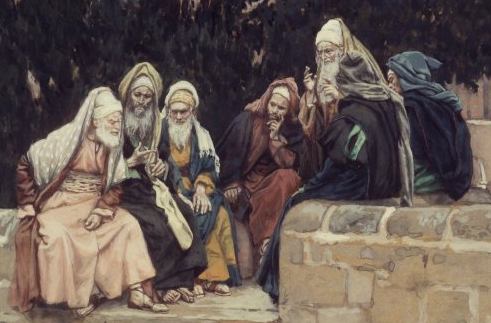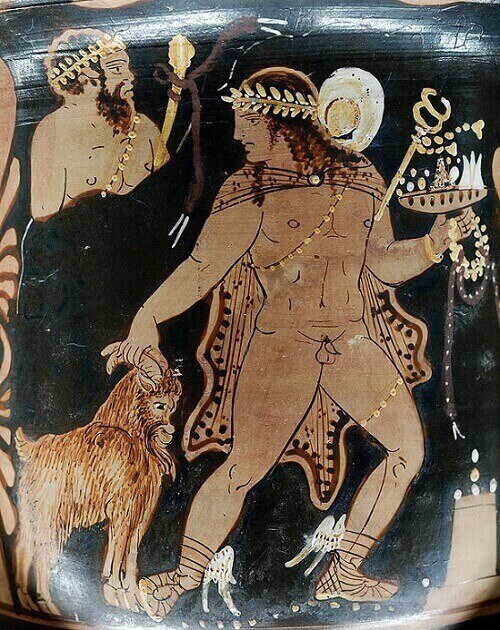“I desire mercy and not sacrifice”, says God in His word: “Instead of offering me sacrifices, I want them to be merciful to others”. I did not come to invite good people to be my followers. Our God comes to call sinners. It is kindness what God wants, without animal sacrifices. He did not come to call respectable people, but the separated ones.
God’s desire is that you have mercy on your brothers. This is a quote from Hosea 6:6, and it doesn’t just tell us that God wants us to love people more than he wants us to observe holiness as a ritual. He tells us that his deepest desire for him, what is most important to him in the whole world, is that people come to him, experience his love, and find themselves clean.
I Desire Mercy and Not Sacrifice is what God says
In Matthew 9: Tax collectors and other outcasts had gathered at Matthew’s house for a banquet. In the center of the hubbub, Jesus and his followers reclined at the table. Realizing the presence of Jesus among such, the Pharisees scoffed.

How could Jesus consider himself a rabbi at a party with such a despicable group? So they took some of Jesus’ converts aside and asked why Jesus was with sinners.
Hearing the question, Jesus replied: Aren’t the sick the ones who need a doctor? (verse 12). How blind the religious leaders were amazed him. How could he reveal God’s love to these people if he didn’t go out with them?
Jesus then admonished the Pharisees. “Go and learn what this means: I want mercy and not sacrifice” (v. 13). He quoted the prophet Hosea, who, centuries earlier, had condemned the Jews for trying to excuse their idolatry and their oppression of the poor by offering animal sacrifices. God always values ”mercy” over “sacrifice.” But what exactly does that mean?

The difference between Mercy and Sacrifice
Many of us look for opportunities to participate in what we consider acts of mercy. We can help prepare and serve a turkey dinner at a soup kitchen. Perhaps we can participate in a coat drive for the homeless, fill a shoebox with gifts, or build a wheelchair ramp for a disabled veteran.
But are these acts of kindness what Jesus really meant when he challenged us to learn the difference between mercy and sacrifice? I do not believe it. God does not want us to help those in need at one time but always.
In addition to that, our Lord longs for us to feel mercy for lost souls “he wants us to love our neighbor as ourselves”, that we talk to them about Christ and his sacrifice and present him as his Lord and savior.
Mercy and Relationships
In Matthew 9, the Pharisees looked around Matthew’s house and saw unnamed “tax collectors” and “sinners.” Jesus saw people he cared about, people he wanted to hang out with, and he knew their names.
When we see what we do in the name of Jesus as faceless sacrifices, we have missed the whole concept of “love as I have loved you” (John 13:34). Everything is personal with Jesus. It’s about relationships.
Many ministries and organizations compete for our time, money and interests. Not even a millionaire could help them all. But if we really want to go beyond sacrifice to mercy, as Jesus calls us to do, we must get involved with the work.
We need to develop relationships with people: people with names and stories, joys and sorrows, prayer requests and praise. Otherwise, I don’t think we understand what Jesus meant by “mercy, not sacrifice.”
Part of the problem is that mercy sounds too much like pity to us. The Merriam-Webster dictionary defines mercy as “compassion or tolerance,” words that convey a certain condescension: Am I not something that helps this person who is less fortunate than me?
Jesus never responded to people with that attitude, even though he, the sinless Son of God, was bowing down to his level. Instead, he took a stand, as he had in Mateo’s house, approached the table, and treated each person with respect and dignity.
What Jesus Wants Regarding Sacrifice
Jesus longs for us to move beyond the idea of sacrifice, of what we feel compelled to give up in order to be perceived as religious. He wants us to engage our hearts with other people’s lives, so the word sacrifice leaves our vocabulary, so that all we know is the passion to love others as he loves us.
Jesus ate with Matthew and his friends because he wanted to, he loved them. I imagine laughter, jokes, boos and joy. Especially joy. The Pharisees could not conceive of that kind of camaraderie between the pious and the publicans, the righteous and the uncompromising, the moral and the defamed.
But Jesus did not label people. So he loved Nicodemus as genuinely as he loved Zacchaeus and Mary of Bethany as he loved Mary Magdalene. He always looked beyond a person’s history to that person’s future.
Why does God want you to have mercy and not sacrifice?
Hosea 6:6 says, “Because I desire steadfast love and not sacrifice, the knowledge of God instead of burnt offerings.” Deuteronomy 6:4-5 exhorts us to make love of God a priority.
In the Old Testament, it can be noted that previously the entire Law, including offerings and sacrifices, had to serve as an expression of this love for the Lord.
However, over time the Israelites began to worship other gods while continuing the sacrificial ritual. They “obeyed the Law”, however, they did not show love towards God, and they did not really know him.
In another passage of the Gospel it says something similar: « If you go to the altar to make your offering and there you remember that your brother has something against you, leave the offering there before the altar and go first to reconcile with your brother; then he returns and presents your offering » (Matthew 5, 23-24 )
The Scriptures often point out that sacrifices to God are incomplete and even offensive without a humbled heart that loves and knows the Lord.
God wants mercy, but not sacrifice, he himself says so in his word. We do not have to kneel on steel nails or pay promises by walking miles, wrapped in earthly garments, because our Lord values more the fact that we love our neighbor.
 893
893


wasn’t hosea asked by God to marry a women of the night to show mercy over sacrifice?